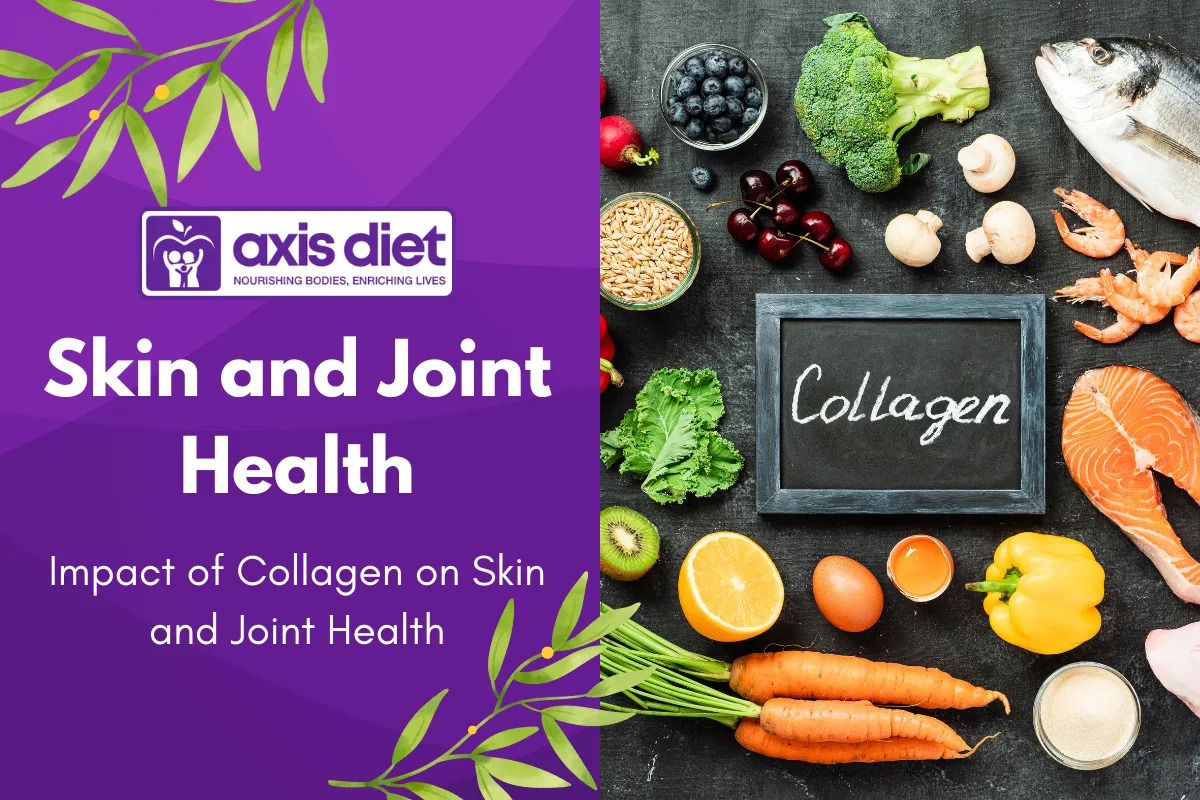Collagen is often hailed as a miracle protein, celebrated for its numerous health benefits, particularly in supporting skin and joint health. As the most abundant protein in the human body, it serves as a foundational element that maintains the structure of our skin, joints, muscles, and connective tissues. However, our natural collagen production decreases as we age, leading to wrinkles, joint pain, and other age-related issues. This article will explore what collagen is and why it is crucial for our overall health, the best natural sources to incorporate into our diets, how we can stimulate our body’s collagen production without relying on supplements, and the essential roles that Vitamin C and amino acids play in this process. Additionally, we will discuss the effects of aging on collagen levels and practical strategies to mitigate these changes, ensuring that you remain vibrant and active as the years pass.
What is Collagen and Why is it Important?
Collagen is a structural protein synthesized in the body, composed of amino acids and provides the scaffolding for our skin, bones, tendons, and ligaments. Approximately 30% of the body’s protein content consists of collagen, making it essential for maintaining elasticity, strength, and overall integrity of tissues. There are more than 16 types of collagen in the human body, but types I, II, and III are the most prevalent.
Type I collagen is vital for skin health; it is most commonly found in tendons, skin, and bones. Type II collagen primarily supports cartilage, while type III collagen is often present alongside type I, contributing to skin, blood vessels, and internal organs.
The importance of collagen cannot be overstated. It plays a significant role in:
- Skin Health: Collagen promotes firmness and elasticity, helping to reduce visibility of wrinkles.
- Joint Health: It maintains the integrity of cartilage, promoting flexibility and comfort during movement.
- Bone Health: Collagen contributes to the structural framework of bones, enhancing their strength and density.
- Muscle and Tissue Support: Collagen aids in muscle contraction and repair of damaged tissues.
The body’s ability to synthesize collagen diminishes with age, typically starting in our mid-twenties, necessitating attention to both collagen intake and production for optimal health.
Best Natural Sources: Bone Broth, Seeds, and More
Incorporating natural sources of collagen into your diet is a practical approach to enhancing your body’s collagen levels. This method not only provides collagen itself but also supplies the necessary nutrients that support its production. Here are some of the best natural sources:
- Bone Broth: A rich source of collagen made by simmering animal bones, bone broth is packed with amino acids such as glycine and proline.
- Fish and Shellfish: Fish like salmon and cod provide collagen-rich skin and scales. Marine collagen is noted for its high absorption rates in the body.
- Eggs: The membranes of eggshells consist of collagen, and the amino acids present in eggs are fundamental for collagen synthesis.
- Citrus Fruits: Foods like oranges, lemons, and grapefruits are rich in Vitamin C, which is crucial for collagen formation.
- Seeds and Nuts: chia seeds, flaxseeds, and walnuts provide essential fatty acids and nutrients required for collagen production.
- Leafy Greens: Spinach, kale, and other leafy greens contain chlorophyll, which is known to boost collagen production due to its high content of antioxidants.
- Berries: Blueberries, strawberries, and raspberries are rich in antioxidants and Vitamin C, which are vital for collagen health.
Choosing a variety of these natural sources will not only aid in collagen intake but also enhance your overall nutrition, supporting various aspects of health.
How to Boost Collagen Production Without Supplements
If you’re looking to boost collagen production naturally, there are various lifestyle changes and dietary adjustments you can make that don’t involve supplements. Here are some effective strategies:
- Prioritize Nutrient-Rich Foods: Incorporate a balanced diet of fruits, vegetables, lean protein, and healthy fats to provide the building blocks necessary for collagen formation.
- Stay Hydrated: Proper hydration is crucial for maintaining skin elasticity and overall health, which indirectly supports collagen production.
- Avoid Excess Sugar and Processed Foods: High sugar intake can interfere with collagen’s natural repair processes, leading to premature aging and inflammation.
- Regular Exercise: Engaging in physical activity promotes blood circulation, which can enhance nutrient delivery to skin and joint tissues, supporting collagen health.
- Protect Your Skin: Consciously reduce sun exposure, as UV rays can degrade collagen faster. Use sunscreen and wear protective clothing when outdoors.
- Manage Stress: Chronic stress can lead to increased levels of cortisol, which has been associated with negative effects on collagen production. Mindfulness, yoga, or meditation can help in managing stress levels.
By applying these changes, you can help to naturally enhance your body’s ability to produce collagen, supporting overall skin and joint health.
The Role of Vitamin C and Amino Acids in Collagen Formation
Vitamin C and amino acids are critical players in the synthesis of collagen. Understanding their roles can help you optimize your diet for better health outcomes.
Vitamin C: Often referred to as the powerhouse vitamin, Vitamin C is necessary for stabilizing and cross-linking collagen fibers, which makes them strong and resilient. It acts as a co-factor in the hydroxylation process, which is essential for proper collagen formation. Inadequate Vitamin C can lead to weakened collagen structures, resulting in symptoms such as dry skin, joint pain, and greater vulnerability to injuries. Foods high in Vitamin C include:
- Citrus fruits (oranges, lemons, grapefruits)
- Bell peppers
- Strawberries
- Kiwi
- Brussels sprouts
Amino Acids: Collagen is primarily made up of amino acids, particularly glycine, proline, and hydroxyproline. Glycine supports the structure of collagen and is involved in the production of creatine, which fuels muscles. Proline is crucial for collagen synthesis, while hydroxyproline is formed from proline and plays a significant role in the molecular stability of collagen. Consuming protein-rich foods such as chicken, fish, beans, and dairy products will provide the necessary amino acids needed for collagen production.
By ensuring adequate intake of both Vitamin C and essential amino acids, you can optimize your body’s natural collagen synthesis.
How Aging Affects Collagen Levels and What You Can Do
Aging significantly impacts collagen production, typically beginning as early as the mid-twenties. As we age, collagen becomes less organized and is produced at reduced levels, contributing to visible changes in our skin and joint health.
Common signs of reduced collagen include:
- Increased wrinkles and sagging skin
- Dryness and loss of elasticity in the skin
- Joint pain, stiffness, and reduced flexibility
- Poor wound healing
However, there are proactive measures you can take to help mitigate these effects:
- Maintain a Healthy Lifestyle: Regular exercise, adequate sleep, and a balanced diet rich in collagen-supporting nutrients can help slow down the aging process.
- Limit Sun Exposure: Protect your skin from UV damage to preserve collagen integrity.
- Avoid Smoking and Excessive Alcohol Consumption: Both habits are known to accelerate skin aging and hamper collagen production.
- Consider Natural Collagen Sources: Include broth, skin, and fish in your meals to naturally enhance your collagen intake.
While we cannot stop aging, we can take conscious steps to support collagen production and enhance our overall health and well-being.
Conclusion
Understanding the vital role collagen plays in skin and joint health is essential for anyone looking to maintain their vitality as they age. From recognizing the importance of collagen and its natural sources, to knowing how to boost production through lifestyle changes and essential nutrients, this knowledge can empower you to make informed dietary decisions. Remember, while it may not be possible to stop the aging process, there are actionable steps you can take to support your body’s collagen levels, helping you to enjoy a more vibrant and active life well into your later years. By focusing on nutrient-dense foods, managing stress, and safeguarding your skin from environmental damage, you can support your collagen and overall well-being.
Axis Diet is dedicated to empowering individuals with knowledge and practical advice for healthier living. Our articles, grounded in research and expert insights, aim to simplify complex nutritional concepts, offering a comprehensive understanding of various aspects of diet and wellness. While these articles are informative and a great starting point for anyone looking to improve their health, they are for informational purposes only. For personalized, professional guidance tailored to your unique health needs, we encourage you to consult with Axis Diet’s registered dietitians. Reach out to us for expert personalized guidance on your nutritional journey.





